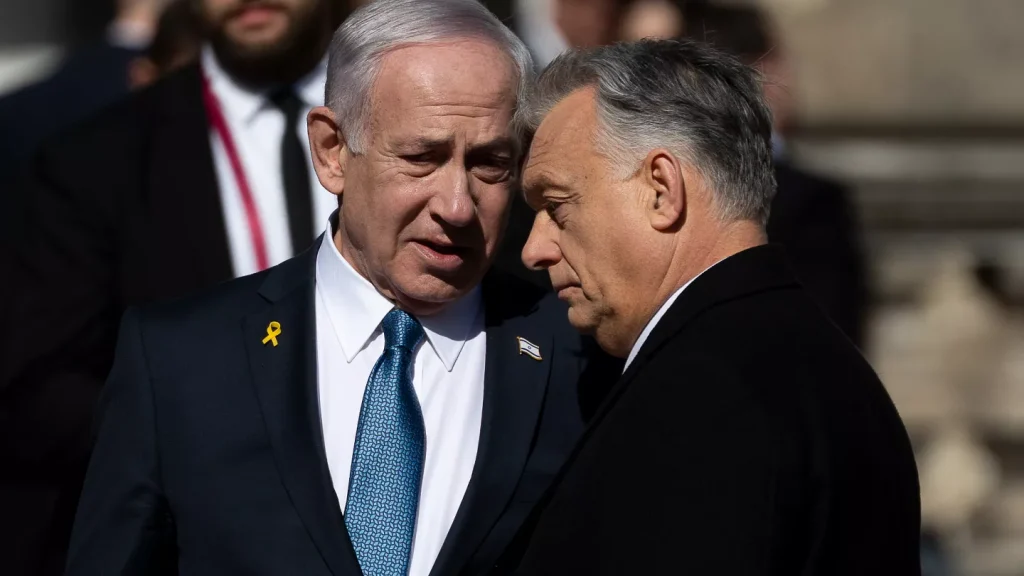Hungary announced on Thursday that it will withdraw from the International Criminal Court (ICC), coinciding with Israeli Prime Minister Benjamin Netanyahu’s visit to Budapest. The decision comes after the ICC issued an arrest warrant for Netanyahu over alleged war crimes in Gaza.
Hungarian Prime Minister Viktor Orban, a strong supporter of Netanyahu, greeted him with military honors, emphasising Hungary’s opposition to the ICC’s ruling. Israeli Foreign Minister Gideon Saar praised Hungary for taking what he called a “clear and strong moral stance” by leaving the court.
Orban invited Netanyahu in November, just a day after the ICC issued its warrant. The Hungarian leader has criticised the court’s move, calling it a politically motivated intervention in an ongoing conflict. Orban’s chief of staff, Gergely Gulyas, confirmed that Hungary would begin the formal withdrawal process on Thursday, which will take one year to finalise.

Despite Hungary’s decision, the ICC reiterated that Budapest is still legally obligated to cooperate with the court until the withdrawal process is complete. “Hungary remains under a duty to cooperate with the ICC,” said court spokesman Fadi El Abdallah.
Netanyahu, who will remain in Hungary until Sunday, is using the visit to push back against the ICC warrant while managing domestic political challenges. According to Moshe Klughaft, a former advisor to Netanyahu, the Israeli leader aims to rebuild his international travel options, starting with countries where he faces no legal risk.
The visit also aligns with US sanctions against the ICC, imposed by US President Donald Trump in February in response to the court’s actions against Israel.
Hungary signed the Rome Statute, the treaty establishing the ICC, in 1999 and ratified it in 2001. However, the country claims it never fully incorporated the convention into domestic law, arguing it is not bound to enforce the court’s decisions. If the withdrawal proceeds, Hungary will join Burundi and the Philippines as the only nations to have exited the ICC.
During the visit, Orban is also expected to back Netanyahu’s support for Trump’s proposal to relocate over two million Palestinians from Gaza to neighboring Egypt and Jordan.
Meanwhile, Netanyahu faces mounting pressure at home over his government’s attempts to restructure Israel’s judiciary and ongoing corruption investigations, including a probe into alleged Qatari payments to his senior staff.


 Trending
Trending 
